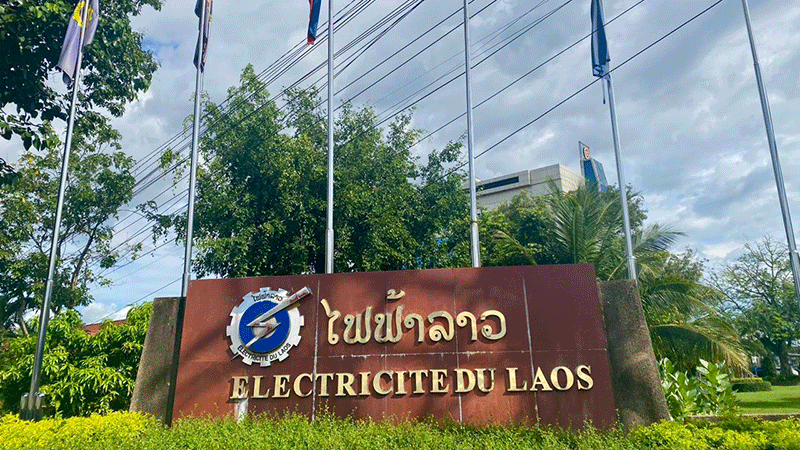 |
| Electricité du Laos is one of the major state enterprises currently undergoing reform. |
Govt rolls out measures to improve state enterprises, hold CEOs accountable
The Ministry of Finance has announced it will carry out regular assessments of state and state-private joint-venture enterprises so that essential measures are taken to improve poorly-performing businesses.
Underperforming government-appointed executives in charge of these businesses will be held accountable, with those deemed to be the most incompetent being transferred, sacked, or even banned from holding a management position for several years.
To this end, Minister of Finance Santiphab Phomvihane signed two ministerial Decisions authorising in-depth assessments of these enterprises and their government-appointed executives.
These long-awaited measures, the first of their kind, aim to enhance the efficiency and effectiveness of state enterprises, ensuring that transparency, accountability, and profitability become the driving forces for national socio-economic development.
The move is part of intensified government efforts to overhaul state enterprises following reports which suggest that most state-owned businesses have suffered chronic losses and accumulated mounting debts.
Members of the National Assembly have previously called for reform, demanding that executives under whose watch losses have been reported for many years, be held accountable.
It was revealed that despite the enterprises under their management continuing to report losses year after year, executives were allowed to continue in their posts.
The Decision on state enterprise assessment outlines financial and non-financial indicators that classify enterprises’ performance into four categories - very good, good, fair, and poor.
Those categorised as poor with no indication of improvement over three consecutive years will face the toughest punishment. The Ministry of Finance will consider ways to overhaul their operations or enforce the law on enterprise rehabilitation and insolvency.
As part of ongoing reform efforts, some state enterprises have been taken over by the private sector, some have become state-private joint ventures, and some have been dissolved.
Under the new framework, enterprises that are classified as good or fair after being assessed must still undergo improvement to be graded as high-performing, and their underperforming executives could be replaced.
Similar assessment and accountability measures will also apply to government-appointed executives in state-private joint venture businesses.
In the case of state-private joint venture enterprises that are judged to have consistently performed poorly, the ministry will decide whether to advise the government about the advisability of the state continuing to hold a stake in them. The Decisions will also see executives and the staff of high-performing companies rewarded. Executives and staff at state enterprises awarded very good and good marks will receive an annual bonus of 10 percent and 5 percent of net profit respectively.
Government-appointed executives will be evaluated and scored in three categories.
Those scoring between 75 and 100 points will receive the highest annual bonuses, followed by those given 50 to 74 points, and their positions may be adjusted.
The Decisions also set out strict measures for those who ignore the evaluation. In the worst cases, executives could be immediately dismissed and banned from holding a post in any state enterprise for a period of three years.
By Phonepaseuth Volakhoun
(Latest Update September 11, 2025)
|


